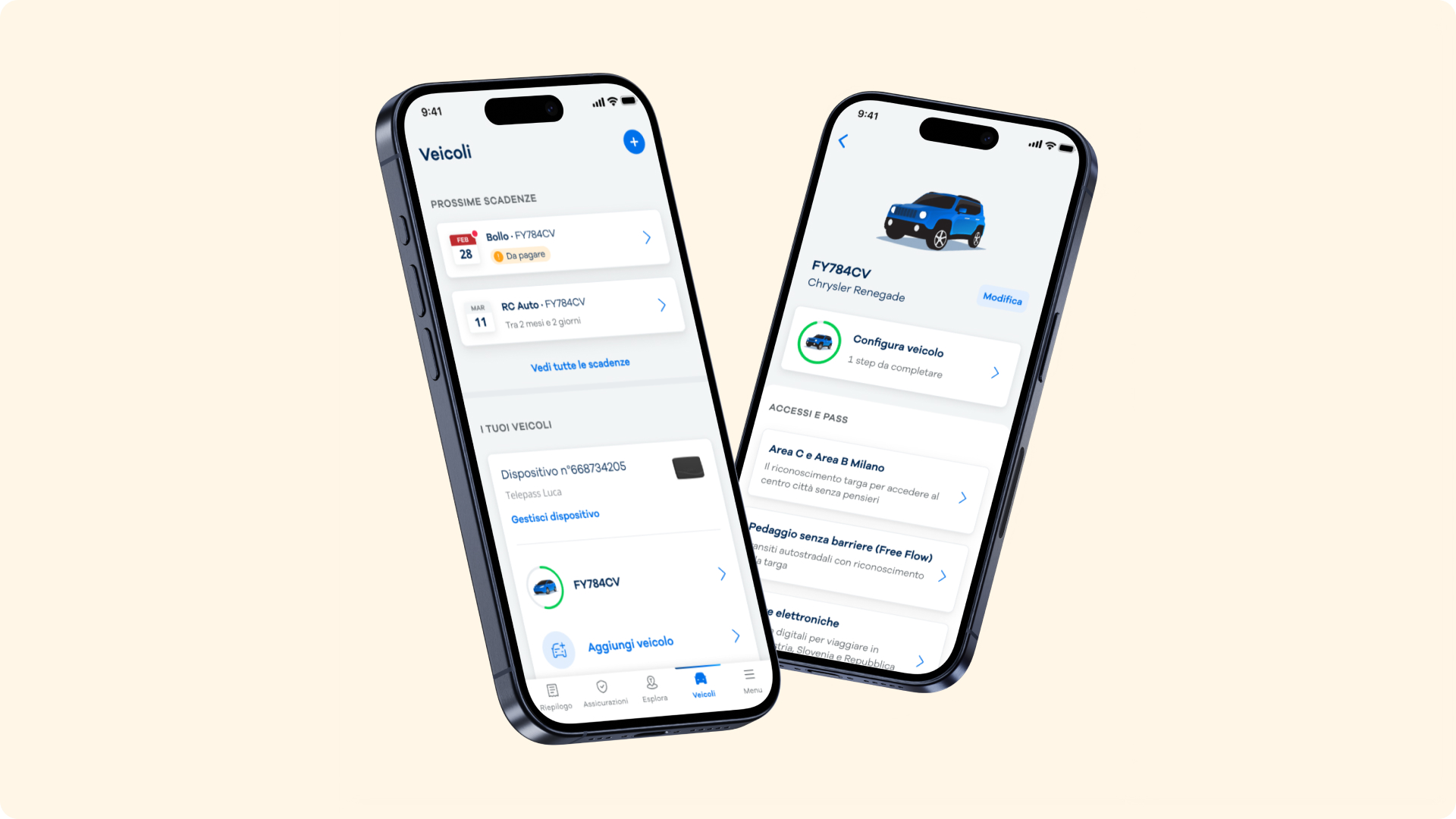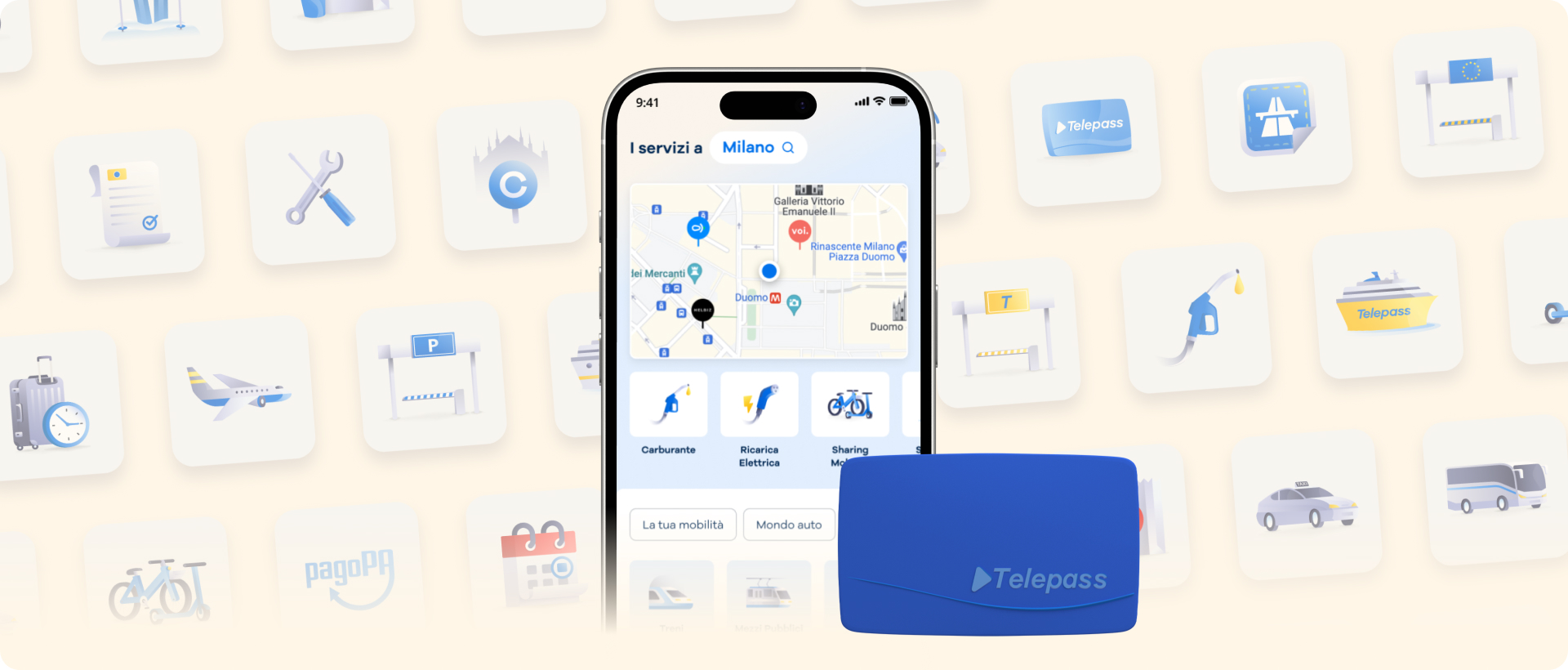
Since its inception, Telepass has been synonymous with toll payment innovation. In 2017, the company took a significant step forward by digitally transforming its service portfolio, culminating in the creation of the Telepass App.
This super-app integrates over 23 mobility-related services, offering solutions like parking payments, fuel purchases, ski pass bookings, fine payments, and train reservations.
Beyond mobility, the app simplifies car management, enabling users to handle insurance, vehicle tax payments, and inspection bookings - all within a single platform. Telepass has redefined convenience for its customers, merging mobility and car ownership into one seamless digital experience.
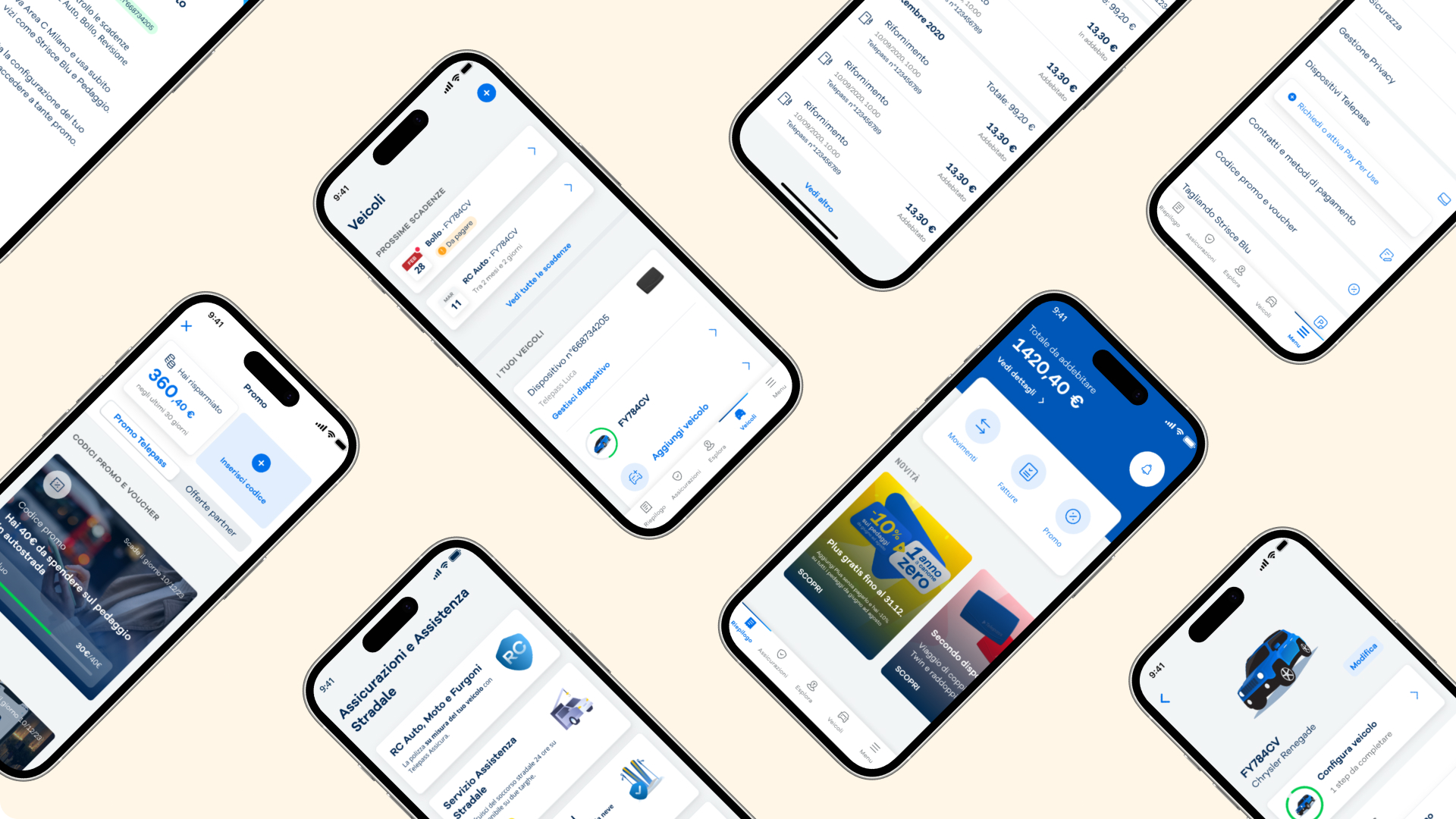
Managing such a vast ecosystem required a robust infrastructure and strategic coordination. The project involved a team of over 120 professionals including service and experience designers, content designers, developers, analysts, and project managers working in sync with a 90-person business and marketing division. More than eight cross-functional teams collaborated to align design, technology and business objectives, ensuring a seamless process from research to execution.
Telepass serves a customer base of over 7 million users, built on a history spanning more than 30 years. This legacy creates a highly complex user base, where every challenge must be addressed across a wide range of scenarios.
Given the scale of users and data handled, privacy and security are paramount in the design process, adhering strictly to national and European regulatory standards.
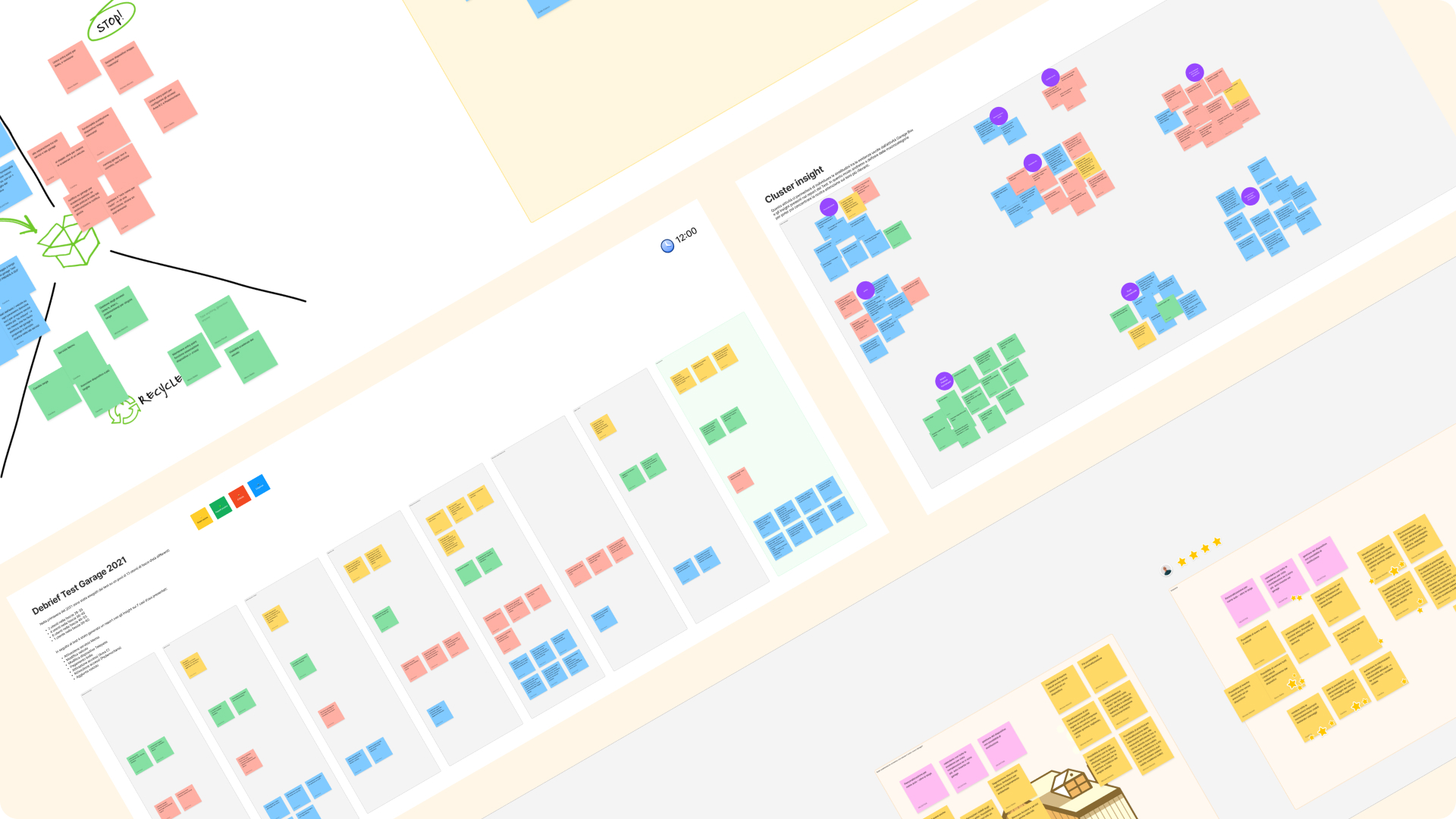
The foundation of this project lies in systems thinking, a method that views design as part of a broader ecosystem. While a robust design system ensures visual and UX consistency, systems thinking takes it further by contextualizing challenges within Telepass’s extensive operational history.
This approach enables the team to recognize when to leverage existing technologies and when to innovate, ensuring solutions are both practical and forward-thinking. A deep understanding of the system’s technological framework is essential for making these decisions effectively.

The design process itself is a dynamic combination of disciplines:
By strategically integrating these processes, the team ensures a user-centered design while maintaining a strong alignment with business goals. The result is a product that balances innovation with consistency, meeting both user and shareholder expectations.
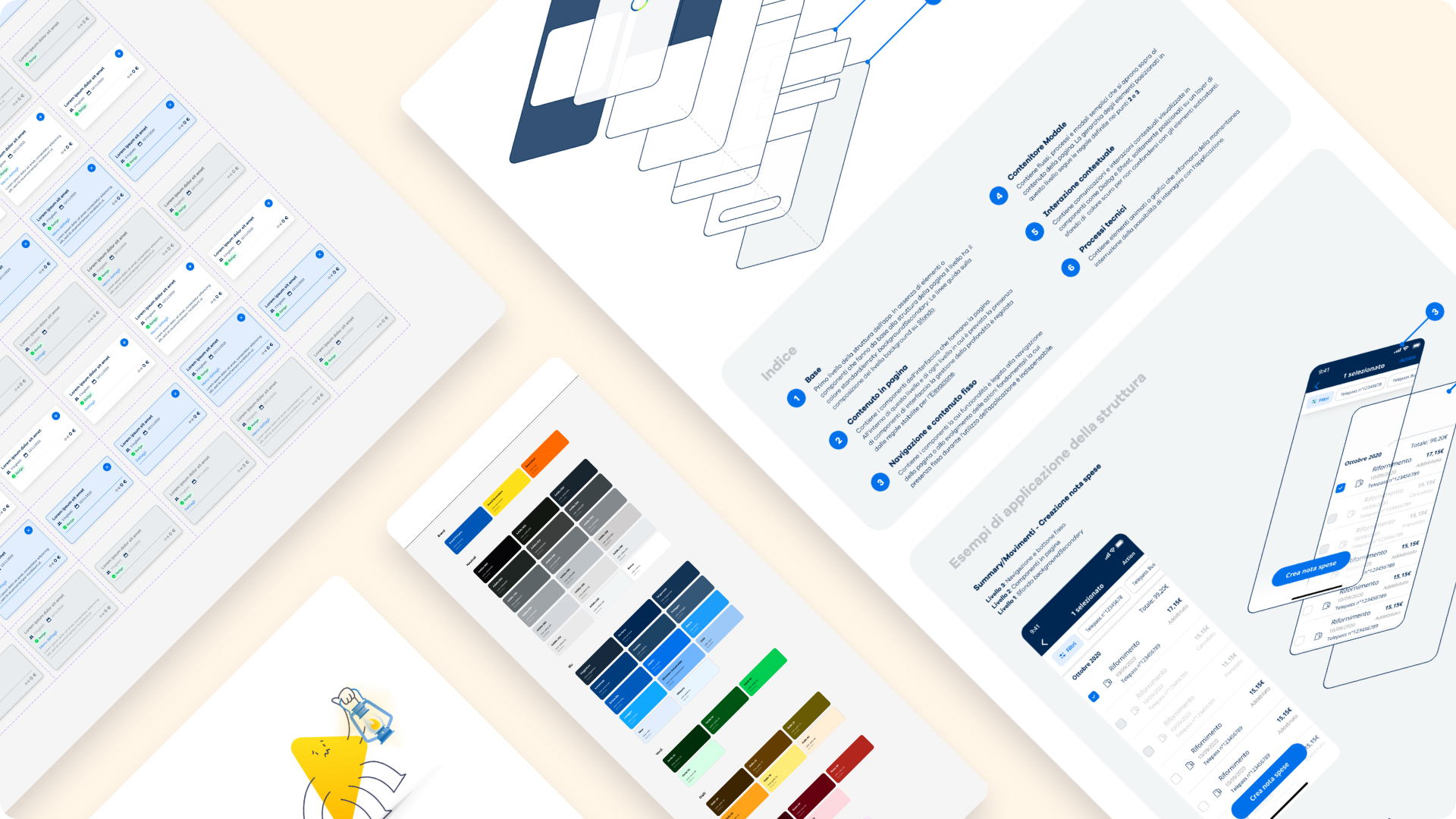
The result of years of meticulous design and collaboration with stakeholders is an app that sets a new benchmark for what a super-app should be in the Italian market.
With over 500.000 monthly active users on average and peaks exceeding 1 million, the app has become an indispensable tool for mobility and lifestyle management. It processes over €27 millions in mobility-related transactions and manages the lifecycle of more than 9 million license plates linked to toll devices, showcasing its scale, reliability, and impact.
This project stands as a testament to the power of design in shaping innovative, user-centric solutions that drive both business success and customer satisfaction.
